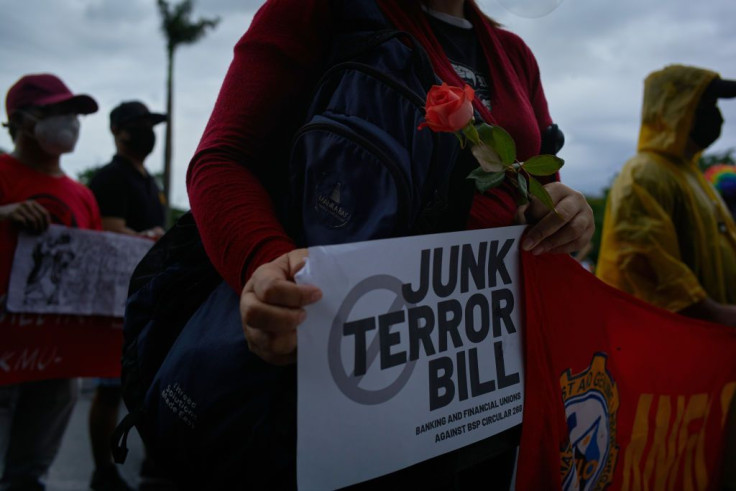An anti-terror bill as problematic as Beijing’s national security law for Hong Kong is set to lapse into law in the Philippines next week. The controversial bill has been awaiting President Rodrigo Duterte’s signature since June.
The anti-terror bill has received widespread backlash from citizens and human rights activists who perceive it as a potential tool of repression by the government. Criticisms of the bill resurfaced earlier this week as the national security law drafted by Beijing for Hong Kong saw the light of the day on Monday, curtailing Hong Kong citizens’ existing rights and freedoms.
The Congress, mostly made up of Duterte’s allies, expedited the passage of the bill in June as Duterte certified it as urgent. While Duterte has yet to ink or veto the widely feared bill, any proposed law in the Philippines automatically lapses into law 30 days after receipt if not acted on by the president. That means even if Duterte fails to sign the bill into law by next week, the anti-terror bill automatically becomes a law.
Just like Beijing’s national security law, the Philippines’ anti-terror bill is said to present a clear danger to democracy. According to Richard Hevdarian, a political scientist who studied China and democracies in Southeast Asia, both the national security law and anti-terror bill provide a perfect pretext for authoritarians to silence the voices of dissent amid the pandemic.
“In both timing and content, the Hong Kong national security law and Duterte’s anti-terror bill present a clear and present danger to democratic forces,” he said. “Through their perilously vague definition of subversion and terrorism, these draconian legislations provide, especially under persisting lockdowns, maximum leeway for autocratic consolidation. If anything, it seems what we are also witnessing is an authoritarian learning, as despots across the region pick from each other’s anti-democratic playbook,” he added.
While lawmakers who support the bill say the anti-terror bill is only meant to strengthen the Philippines’ fight against terrorism, activists doubt the legislative intent behind the bill.
Since becoming president in 2016, Duterte has threatened journalists, labor group leaders, politicians, and activists who have spoken out against the administration and his policies. Last month, ABS-CBN, the largest news network in the Philippines which Duterte previously admitted to holding a personal grudge against, was shut down. Renowned Filipino journalist Maria Ressa was also recently convicted of cyber libel, a move that activists claimed to be politically motivated.

© 2025 Latin Times. All rights reserved. Do not reproduce without permission.



